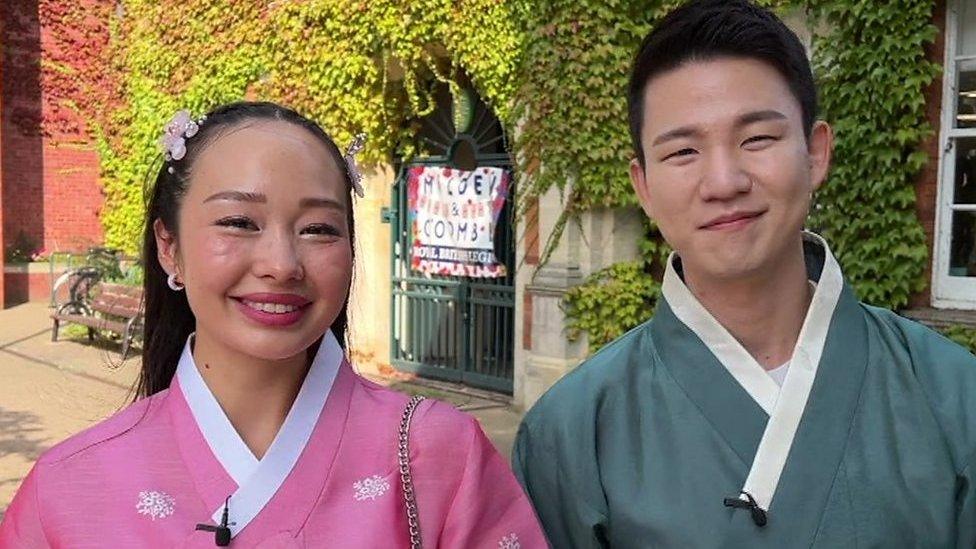Lunar New Year: The London suburb where North and South Koreans unite
- Published
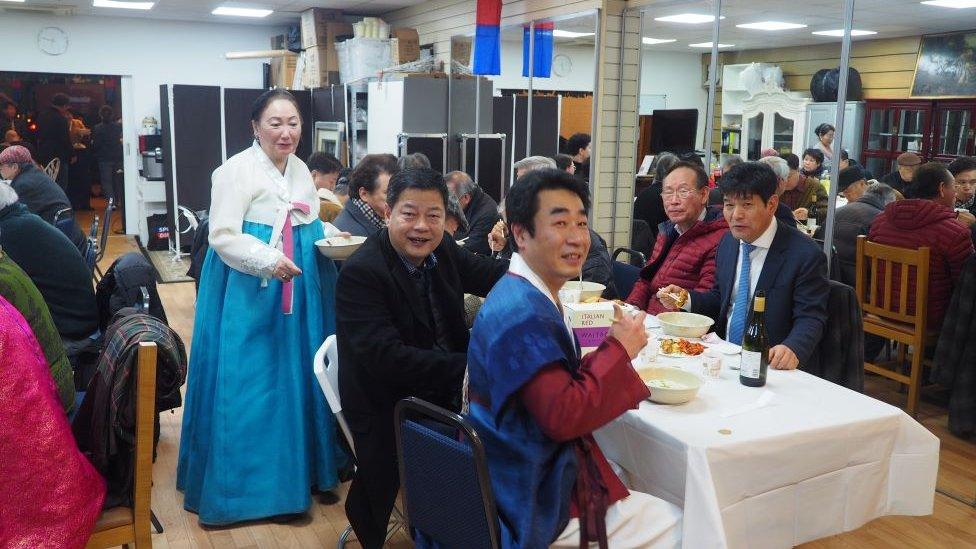
People come together and eat at Lunar New Year celebrations
As millions of people around the world ring in the Lunar New Year, the celebrations in one London suburb are bringing North and South Koreans together.
But for Min Jung Park - not her real name - and other North Koreans who cannot return to their homeland, this festive season reminded them of family members they had left behind.
Ms Park, a North Korean defector, said her decision to leave was not driven by opposition to the regime but because she could no longer cope with starvation.
After arriving in the UK in 2007, she settled in New Malden in south-west London which is believed to be home to the largest concentration of Korean people anywhere in Europe.
She said: "When I eat traditional food during the Lunar New Year, I would burst into tears because I remember my brothers and sisters back in North Korea. And I think how good it would have been if my parents were still alive to taste these delicious dishes we get to enjoy here [in the UK]."
North Korea is suffering from chronic food shortages and Ms Park said this meant that she was not able to treat her parents to a fancy meal.
She said: "I tell my kids here in the UK to be good to their parents, because in North Korea I couldn't provide for my own parents even if I wanted to."
Families sharing meals, playing traditional games and gathering to pay respects to their ancestors is a big part of celebrating the Lunar New Year, known as Seollal in Korean.
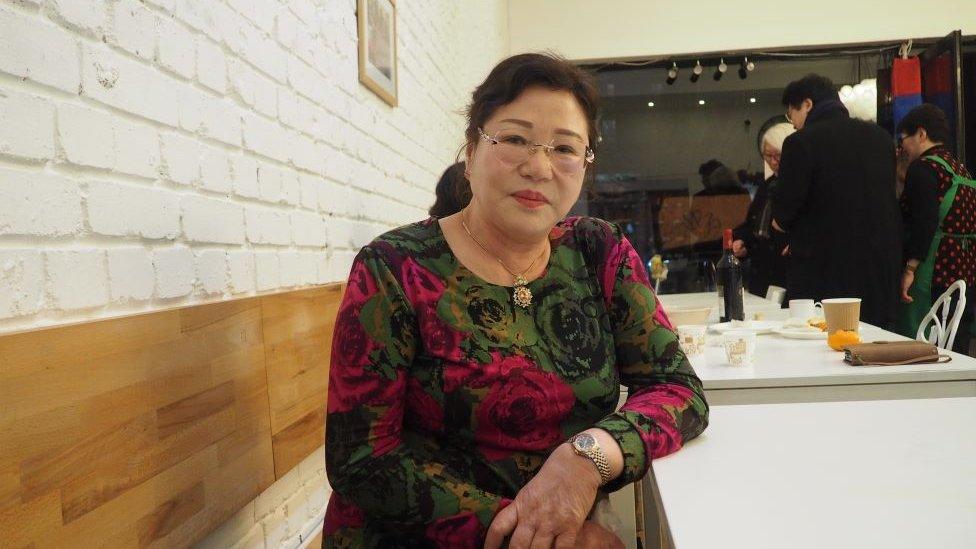
North Korean defector Yi Young Choi says the New Year celebrations make her wonder if her siblings were still alive
Yi Young Choi is another North Korean defector who lives in New Malden with her husband and granddaughter.
She said she constantly thought about her siblings in North Korea and the Lunar New Year period evoked a greater sense of longing for them.
"During New Year, you would eat specially prepared food that you wouldn't normally eat," she said.
"Special occasions like these automatically make me think of my family members in North Korea. Then I feel bad for eating so well [here]."
Ms Choi's eyes filled with tears as she recounted her life back in North Korea.
"I wonder what my brothers and sisters are doing right now? And then I ask myself, would they still be alive?" she added.
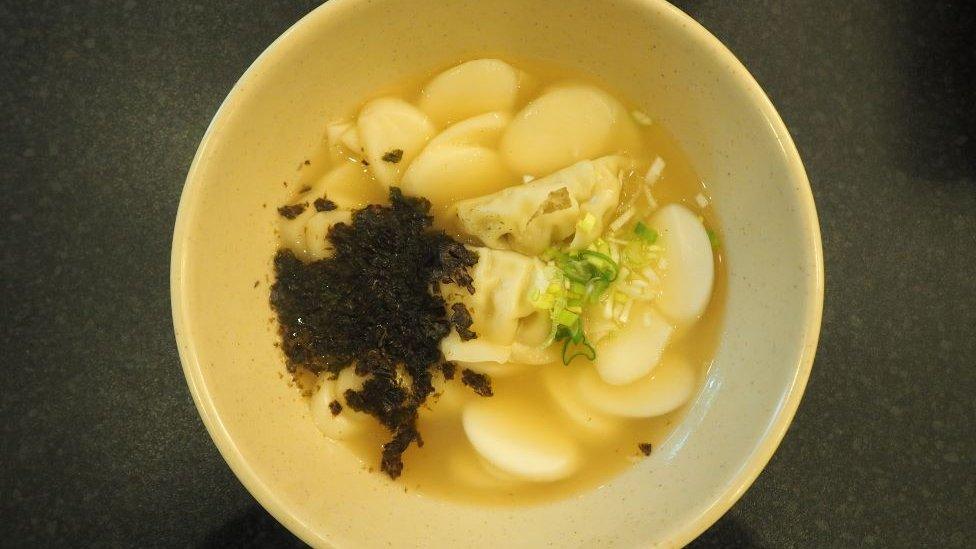
Tteokguk is a Korean soup dish typically eaten during Lunar New Year in South Korea
'We are all just Koreans'
Despite years of co-existence in the same area of London, North and South Korean communities seldom mix in personal settings.
Hyunsu Yim is chairman of New Malden's Korean Culture and Art Centre, which organised the Lunar New Year event to unite the two communities.
He emphasised the strength of culture as a way to break down barriers.
"Sharing a common tradition like the Lunar New Year and language make it easier to connect with each other," he said.
"In our culture centre, we are all just Koreans."
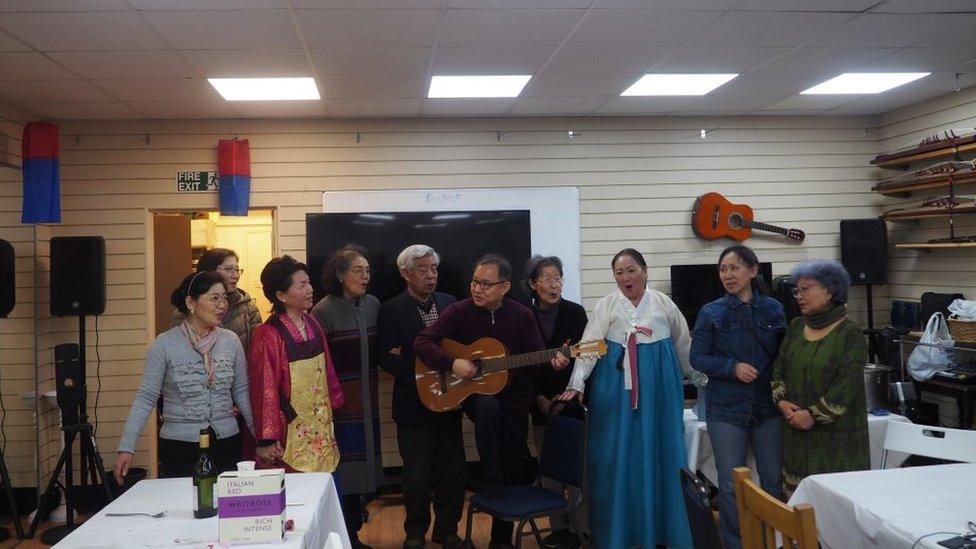
Members of both the North and South Korean communities performed together at an event to celebrate Lunar New Year
Jung Hee Lee is head of the North Korean residents' society in the UK and co-organised the event with Mr Yim.
For Ms Lee, her adoptive home of New Malden has not only provided her shelter and a chance for a better life but also a new family.
She said: "When North Koreans flee, they usually leave their siblings behind.
"A lot of the elderly North Korean defectors living in New Malden are lonely because their children have all grown up and left home, so we bond through our similar experiences and circumstances.
"We are like brothers and sisters."
Related topics
- Published10 February 2024
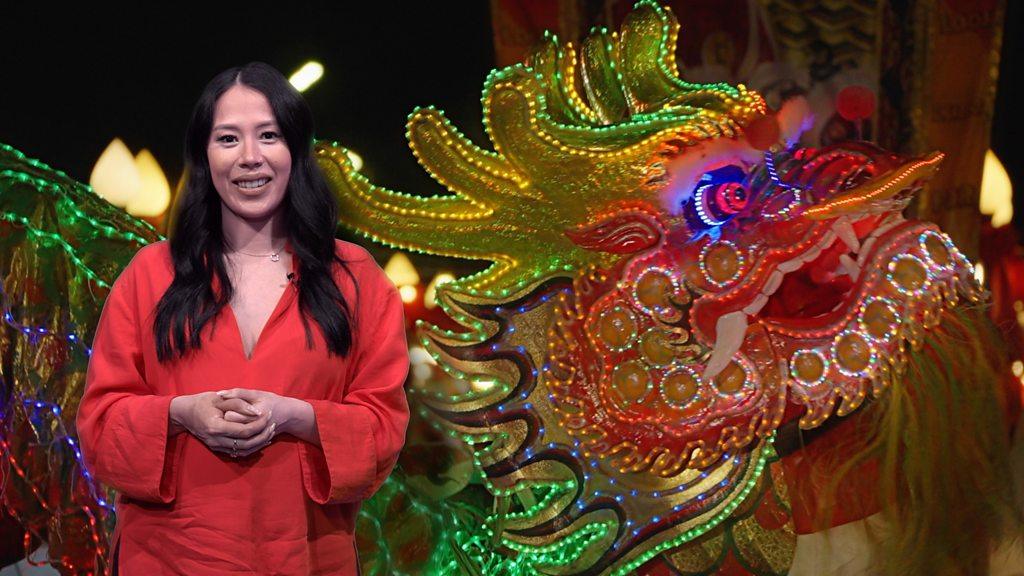
- Published8 November 2023
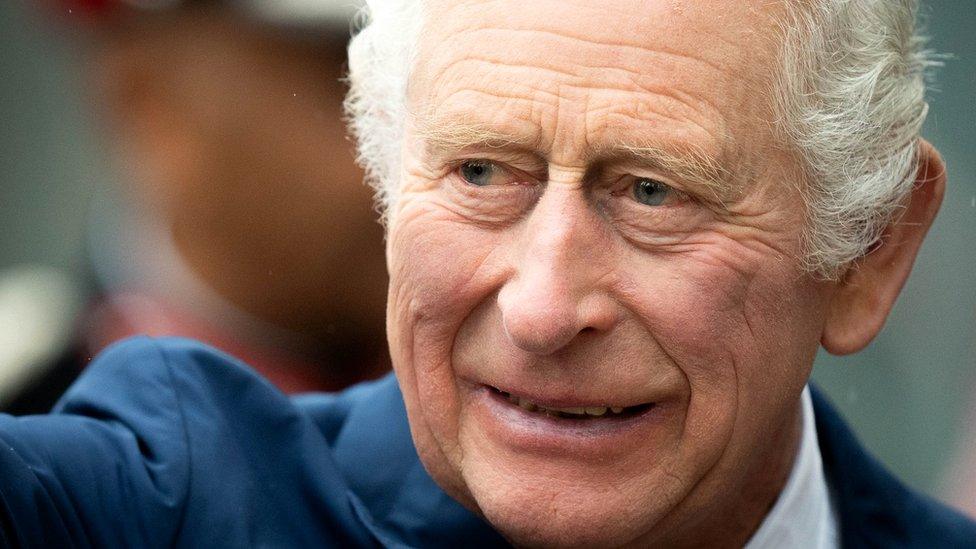
- Published9 October 2023
